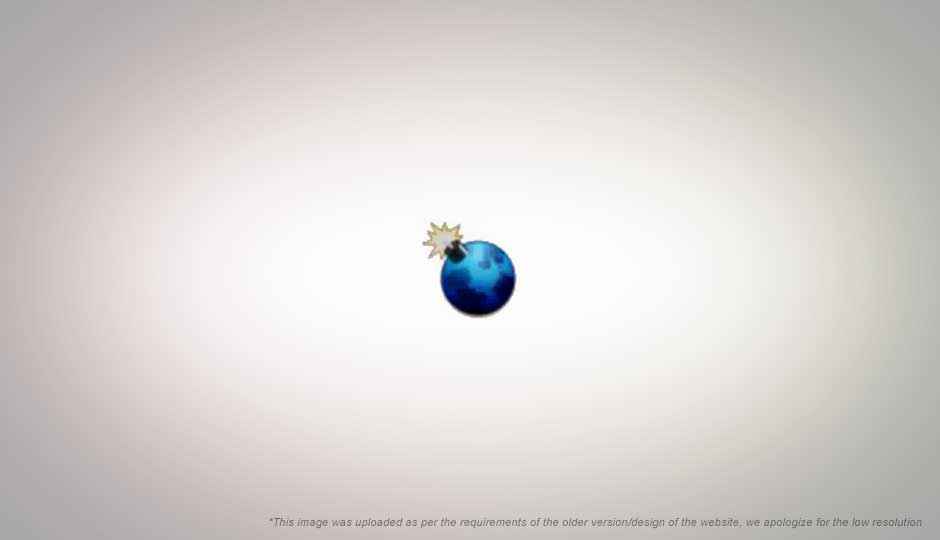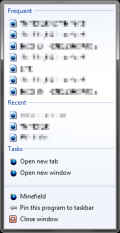Firefox begins showing signs of Windows 7 integration

A while back the developers at Mozilla gave us a taste of what they had coming for us with their Firefox 3.7 release.
With 3.7 Firefox aims to become better integrated on Windows PCs by utilizing Aero effects, and cleaning up the interface of extraneous elements. While this has attracted some criticism, with people calling them out for copying Chrome, the Mozilla devs stated the obvious; both Chrome and Firefox are browsers, and as they are expected to perform the same task, it is only natural that they will share some common paths in their evolution.
Now Firefox is beginning to show some of those signs on its evolutionary road, and those brave enough to download the latest-and-greatest nightly versions of the browser can now try it out for themselves.
With Firefox, you can download and test The Latest Version by using the nightlies, which is essentially the equivalent of getting the latest progress in the development front! The only way to get a version even newer is to download the source code as it changes, and build it yourself.
Some of the visual refreshes which will come on the way to Firefox 3.7 have already started. You can now hide away the menubar of Firefox to save screen space, and instead only have it display when you press the “Alt” key, much like Internet Explorer, and Windows Explorer. Combined with the “Use Small Icons” option for the Firefox toolbar, you can now have that minimalistic look today.
Other integrations with the Windows environment include, support for Windows 7 jumplists, and showing tabs in the taskbar.
 |
.png) |
| Firefox 3.7 Jumplists | Firefox 3.7 Task bar previews |
For those who somehow missed the news, in Windows 7, application which support the feature, can now show their tabs directly on the Windows task bar, allowing for tab management straight from Windows. On a personal note, I absolutely hate this feature, applications added tabs to reduce the clutter on the task bar, and Windows now find a way to sneak in and show them anyway! To be fair windows management has improved a lot over time, especially with Windows 7, however for someone with as many as 30 to 50 tabs open any given time, tab previews wont be of much use.
Yet I understand how this can be useful to some or many, which is why in this case I believe the best feature added, is the facility to actually choose if you want the tabs displayed or not!
By entering “about:config” into your browser location bar, you can access a lot of the hidden settings of Firefox which haven’t been exposed in the UI otherwise. After opening “about:config” in a browser tab, you can go about configuring how the jump lists and tab previews work on Windows.
- First of all, if you don’t have The Latest Version, get the Firefox nightly build “Minefield” from here.
- Open “about:config”
- Dismiss the warning, we know what we are doing (we think)
- In the filter text, enter “task”
- Here you will now see options to:
- enable/disable the jump-lists
- browser.taskbar.lists.enabled
- enable/disable showing frequent items
- browser.taskbar.lists.frequent.enabled
- change how many “Frequent” items are displayed
- browser.taskbar.lists.maxListItemCount
- enable/disable showing of “Recent” documents
- browser.taskbar.lists.recent.enabled
- enable/disable showing tasks
- browser.taskbar.lists.tasks.enabled
- enable/disable showing tab previews in taskbar (disable for old-style tab management through Firefox only)
- browser.taskbar.previews.enable
- set how many tabs need to be opened before it stops showing previews
- browser.taskbar.previews.max
- set the cache time of tab previews
- browser.taskbar.previews.cachetime
- browser.taskbar.previews.cachetime
- enable/disable the jump-lists
This isn’t all though, the Firefox nightlies have a lot more to offer, here are some more of the new features:
- Support for new lightweight themes. Essentially support for “Personas” without installing the Personas addon. You can check out the themes here. Note, that you only have to roll-over a theme to test it! This is quite similar to the simplistic theme support in Chrome 3.
- A new page loading progress indicator in the form of a pie-chart in the location where you usually see the website’s icon.
- New “about:memory” for showing memory usage information, and “about:support” showing troubleshooting information.
